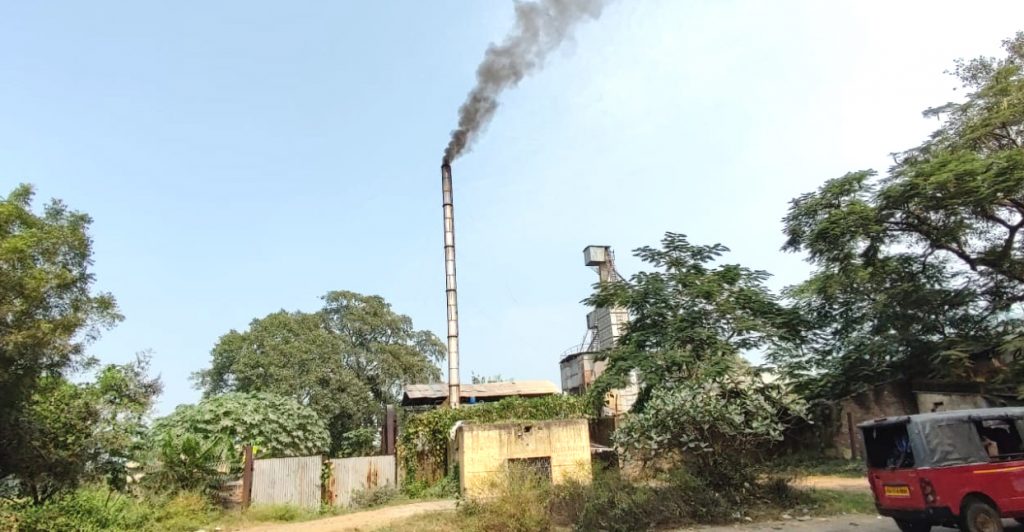Sambalpur: Severe pollution has made life intolerable for the residents in Sambalpur district, said a report.
Presence of many large industries outside the Sambalpur town and rice mills operating inside the town are allegedly contributing to air and water pollution in the area.
Both human beings and animals are getting affected and suffering from various diseases as they get exposed to the toxic effluents and smoke emanating from these rice mills.
Reports said there are around 52 rice mills in the district but none are allegedly adhering to the rules laid down by the National Green Tribunal (NGT).
On the other hand, the tribunal has directed the State Pollution Control Board (SPCB) to periodically review the pollution control measures in rice mills but the SPCB has allegedly failed to do so.
The SPCB, instead of verifying the pollution control measures in the rice mills, is allegedly showing them undue favour.
Rice mills discharge toxic effluents, waste materials and smoke which contribute to air and water pollution.
To check and measure air pollution, the mills install particulate matter emission machine in their premises. These machines, if properly working, will help in checking pollution and presence of particulate matter in the atmosphere.
These machines also help in spillage of the paddy husk, stone granules and dust when paddy is being milled in the boiler machine. Most of the exhaust chimneys lack proper mechanism to check black toxic smoke.
Moreover, many of the rice mills throw up waste materials in the open which has led to pollution in the area, locals alleged.
The effluents and discharged waste materials pollute the ground and air in the surroundings and spread to farmlands and human habitats.
Things have come to such a pass that it has become difficult to pass by the rice mills on the road. These pollutants have become health hazards for scores of labourers and officials working in these rice mills.
Many of them have been affected with respiratory diseases and other problems.
Labourers have alleged that nothing has been done yet to alleviate the problem despite lodging complaints with their respective rice mills proprietors.
Moreover, water pollution is another major cause of concern. The waste water gives out foul smell which has made life hell for the nearby residents.
The milling of paddy for rice needs water for which the mills are required to install effluent treatment plants (ETP) on their premises.
However, nobody is adhering to the rules which have remained only on pen and papers. The ETPs recycle the waste water for use in farm works.
The mill owners however, are allegedly not installing the machines to save money on electricity bills, labour wages and repairing.
The SPCB which needs to launch a crackdown on errant rice mills has chosen to remain silent on the issue for reasons known best to it.
It is alleged that the pollution board is allegedly forcing the rice mills to buy and install an ETP of a particular firm which is becoming defunct after some time.
When contacted, Ramesh Ekka, regional director, SPCB said the rice mills have been asked to adhere to the NGT rules while raids are being conducted at regular intervals.
He warned of taking action against any mill found violating these rules.
PNN

